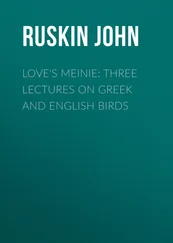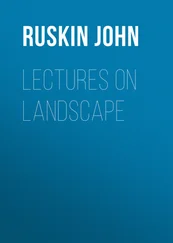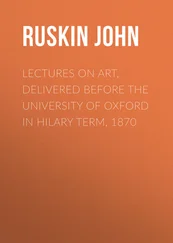John Ruskin - Hortus Inclusus
Здесь есть возможность читать онлайн «John Ruskin - Hortus Inclusus» — ознакомительный отрывок электронной книги совершенно бесплатно, а после прочтения отрывка купить полную версию. В некоторых случаях можно слушать аудио, скачать через торрент в формате fb2 и присутствует краткое содержание. Жанр: Биографии и Мемуары, literature_19, foreign_antique, на английском языке. Описание произведения, (предисловие) а так же отзывы посетителей доступны на портале библиотеки ЛибКат.
- Название:Hortus Inclusus
- Автор:
- Жанр:
- Год:неизвестен
- ISBN:нет данных
- Рейтинг книги:4 / 5. Голосов: 1
-
Избранное:Добавить в избранное
- Отзывы:
-
Ваша оценка:
- 80
- 1
- 2
- 3
- 4
- 5
Hortus Inclusus: краткое содержание, описание и аннотация
Предлагаем к чтению аннотацию, описание, краткое содержание или предисловие (зависит от того, что написал сам автор книги «Hortus Inclusus»). Если вы не нашли необходимую информацию о книге — напишите в комментариях, мы постараемся отыскать её.
Hortus Inclusus — читать онлайн ознакомительный отрывок
Ниже представлен текст книги, разбитый по страницам. Система сохранения места последней прочитанной страницы, позволяет с удобством читать онлайн бесплатно книгу «Hortus Inclusus», без необходимости каждый раз заново искать на чём Вы остановились. Поставьте закладку, и сможете в любой момент перейти на страницу, на которой закончили чтение.
Интервал:
Закладка:
John Ruskin
Hortus Inclusus / Messages from the Wood to the Garden, Sent in Happy Days / to the Sister Ladies of the Thwaite, Coniston
PREFACE
The ladies to whom these letters were written have been, throughout their brightly tranquil lives, at once sources and loadstones of all good to the village in which they had their home, and to all loving people who cared for the village and its vale and secluded lake, and whatever remained in them or around of the former peace, beauty, and pride of English Shepherd Land.
Sources they have been of good, like one of its mountain springs, ever to be found at need. They did not travel; they did not go up to London in its season; they did not receive idle visitors to jar or waste their leisure in the waning year. The poor and the sick could find them always; or rather, they watched for and prevented all poverty and pain that care or tenderness could relieve or heal. Loadstones they were, as steadily bringing the light of gentle and wise souls about them as the crest of their guardian mountain gives pause to the morning clouds: in themselves, they were types of perfect womanhood in its constant happiness, queens alike of their own hearts and of a Paradise in which they knew the names and sympathized with the spirits of every living creature that God had made to play therein, or to blossom in its sunshine or shade.
They had lost their dearly-loved younger sister, Margaret, before I knew them. Mary and Susie, alike in benevolence, serenity, and practical judgment, were yet widely different, nay, almost contrary, in tone and impulse of intellect. Both of them capable of understanding whatever women should know, the elder was yet chiefly interested in the course of immediate English business, policy, and progressive science, while Susie lived an aerial and enchanted life, possessing all the highest joys of imagination, while she yielded to none of its deceits, sicknesses, or errors. She saw, and felt, and believed all good, as it had ever been, and was to be, in the reality and eternity of its goodness, with the acceptance and the hope of a child; the least things were treasures to her, and her moments fuller of joy than some people's days.
What she had been to me, in the days and years when other friendship has been failing, and others' "loving, mere folly," the reader will enough see from these letters, written certainly for her only, but from which she has permitted my Master of the Rural Industries at Loughrigg, Albert Fleming, to choose what he thinks, among the tendrils of clinging thought, and mossy cups for dew in the Garden of Herbs where Love is, may be trusted to the memorial sympathy of the readers of "Frondes Agrestes."
J. R.Brantwood,
June, 1887 .
INTRODUCTION
Often during those visits to the Thwaite which have grown to be the best-spent hours of my later years, I have urged my dear friend Miss Beever to open to the larger world the pleasant paths of this her Garden Inclosed. The inner circle of her friends knew that she had a goodly store of Mr. Ruskin's letters, extending over many years. She for her part had long desired to share with others the pleasure these letters had given her, but she shrank from the fatigue of selecting and arranging them. It was, therefore, with no small feeling of satisfaction that I drove home from the Thwaite one day in February last with a parcel containing nearly two thousand of these treasured letters. I was gladdened also by generous permission, both from Brantwood and the Thwaite, to choose what I liked best for publication. The letters themselves are the fruit of the most beautiful friendship I have ever been permitted to witness, a friendship so unique in some aspects of it, so sacred in all, that I may only give it the praise of silence. I count myself happy to have been allowed to throw open to all wise and quiet souls the portals of this Armida's Garden, where there are no spells save those woven by love, and no magic save that of grace and kindliness. Here my pleasant share in this little book would have ended, but Mr. Ruskin has desired me to add a few words, giving my own description of Susie, and speaking of my relationship to them both. To him I owe the guidance of my life,—all its best impulses, all its worthiest efforts; to her some of its happiest hours, and the blessings alike of incentive and reproof. In reading over Mr. Ruskin's Preface, I note that, either by grace of purpose or happy chance, he has left me one point untouched in our dear friend's character. Her letters inserted here give some evidence of it, but I should like to place on record how her intense delight in sweet and simple things has blossomed into a kind of mental frolic and dainty wit, so that even now in the calm autumn of her days, her friends are not only lessoned by her ripened wisdom, but cheered and recreated by her quaint and sprightly humor.
In the Royal Order of Gardens, as Bacon puts it, there was always a quiet resting-place called the Pleasaunce; there the daisies grew unchecked, and the grass was ever the greenest. Such a Pleasaunce do these Letters seem to me. Here and there, indeed, there are shadows on the grass, but no shadow ever falls between the two dear friends who walk together hand in hand along its pleasant paths. So may they walk in peace till they stand at the gate of another Garden, where
"Co' fiori eterni, eterno il frutto dura."
A. F.Neaum Crag,
Loughrigg,
Ambleside.
PREFACE TO THE THIRD EDITION
Since these letters were published fourteen years ago, both Mr. Ruskin and Miss Beever have passed to the country he longed to find, "where the flowers do not fade." In this new Edition some of the earlier letters have been withdrawn, and others, of possibly wider interest, are inserted in their place. I have also added a reproduction of Mr. Ruskin's last letter to Miss Beever. It was written about the 20th October, 1893, and was read to her on her death-bed. He was then himself in broken health, and it took him three weary hours to write this little note of eight lines. I believe this to be the last complete letter that ever came from his pen. Miss Beever sent it to me with the wish "that some day I might use it," and I now fulfill that wish by inserting it here as the pathetic close to a correspondence, in which there was so much of a gay and playful nature; commending it to the "memorial sympathy" claimed by him for his earlier letters. The word "Phoca" is a signature often used by him in writing to his old friend.
I have been asked to add illustrations to this Edition; and some fresh explanatory notes and dates will also be found.
A. F.Neaum Crag,
Ambleside,
1902.
HORTUS INCLUSUS
Brantwood, 16th March, 1874 .
My dearest Susie,—
In a state of great defeat and torment, this morning—having much to do with the weather and—not living on milk, I have been greatly helped by—one of my own books! 1 1 "The Queen of the Air." See page 70 .
It is the best I ever wrote—the last which I took thorough loving pains with—and the first which I did with full knowledge of sorrow.
Will you please read in it—first—from 65 at the bottom of page 79 2 2 Cf. contemporary edition.
as far as and not farther than, 67 in page 81. That is what helped me this morning.
Then, if you want to know precisely the state I am in, read the account of the Myth of Tantalus, beginning at 20—p. 24 and going on to 25—page 31.
It is a hard task to set you, my dear little Susie; but when you get old, you will be glad to have done it, and another day, you must look at page 94, and then you must return me my book, for it's my noted copy and I'm using it.
Читать дальшеИнтервал:
Закладка:
Похожие книги на «Hortus Inclusus»
Представляем Вашему вниманию похожие книги на «Hortus Inclusus» списком для выбора. Мы отобрали схожую по названию и смыслу литературу в надежде предоставить читателям больше вариантов отыскать новые, интересные, ещё непрочитанные произведения.
Обсуждение, отзывы о книге «Hortus Inclusus» и просто собственные мнения читателей. Оставьте ваши комментарии, напишите, что Вы думаете о произведении, его смысле или главных героях. Укажите что конкретно понравилось, а что нет, и почему Вы так считаете.












